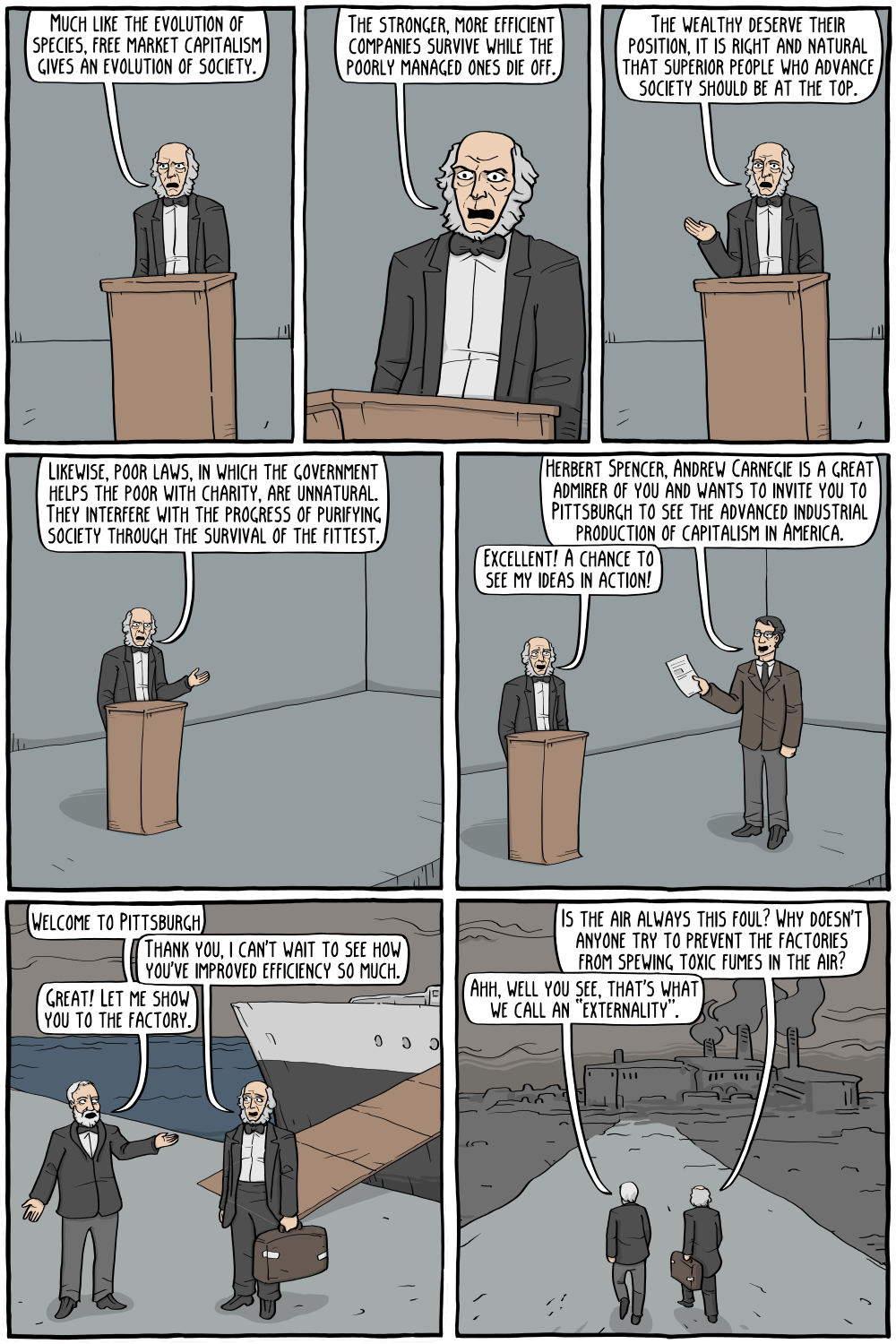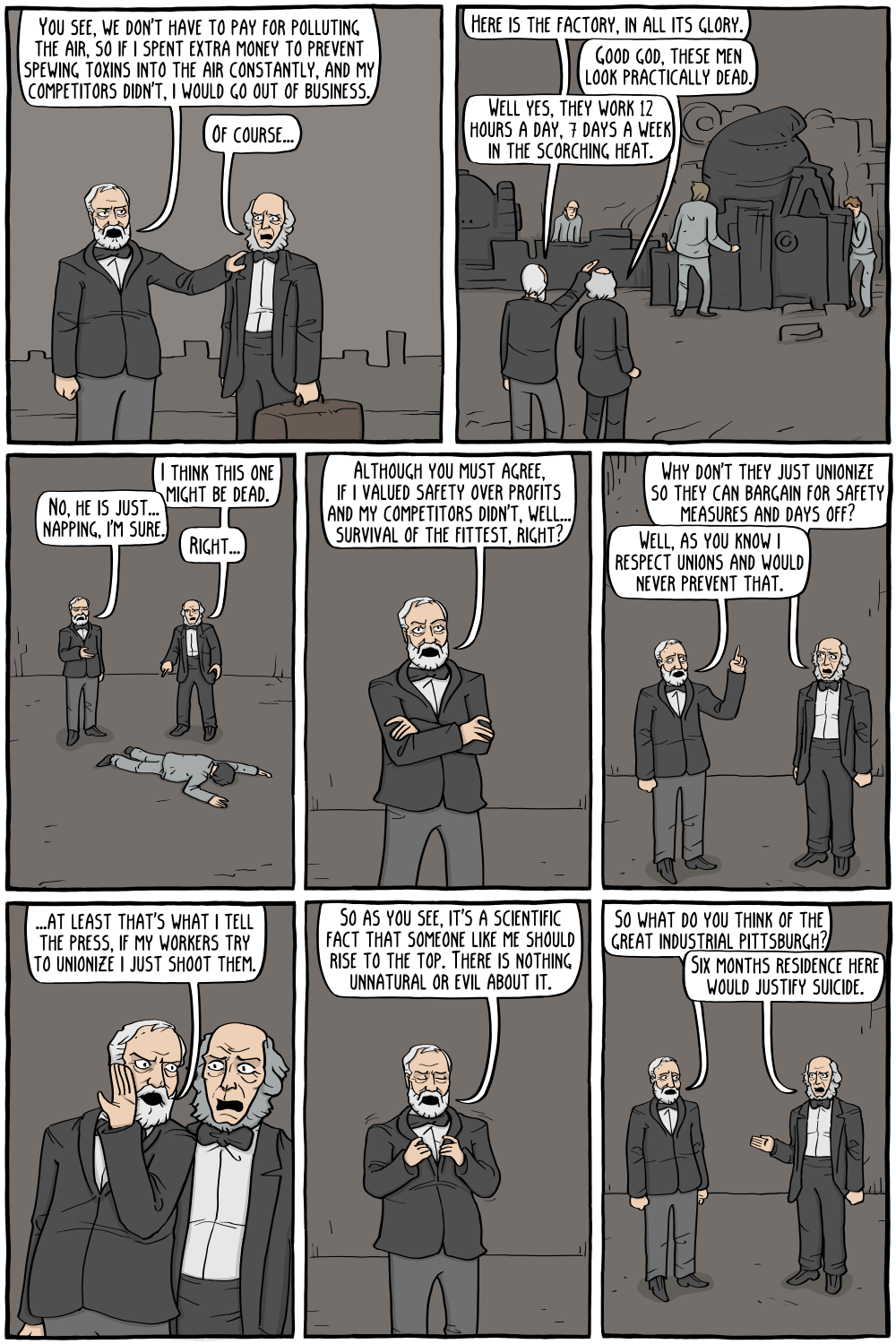

Herbert Spencer was a libertarian capitalist philosopher, who thought the government should interfere as little as possible with the free market. Like most libertarian philosophers, he thought government intervention interfered with human freedom and our ability to make contracts with each other freely. However, he also believed that government intervention, such as with poor-laws (i.e. welfare) interfered with the natural process of evolution. He believe the brutal competition of capitalism was good, because weak firms would die out, which would lead to an improved society. Government should not assist firms that are financially struggling, since it only harms society in the long run by allowed inferior firms to survive. He also applied this logic to individuals, however, believing the humanity must undergo a "purifying process" to create better genetics that would be more suited to deal with the new industrial form of society. Eugenics was not an uncommon idea at the time, but Spencer was very enthusiastic about it, and is the philosopher most associate with Social Darwinism and the phrase "survival of the fittest", which he very much applied to humans. He more or less thought it would be good for the genepool if the poor died out, because they are obviously unsuited to flourish in the next stage of human history.
Andrew Carnegie was very pleased with Spencer's philosophy, because it showed that it was right and natural for men like him to be on top, and he wasn't evil or oppressive at all, but in fact driving society forward towards the better. He invited Spencer to Pittsburgh to see the advanced capitalist production that his ideas inspired. Spencer was extremely disappointed with Pittsburgh, finding the city to be dirty, polluted, the factories were oppressive, and the capitalists overly obsessed with competition, saying about Pittsburgh "six months residence here would justify suicide."
Carnegie, like the comic shows, gained a competitive advantage in part through brutally oppressing his workers, making them work 12 hours a day, 7 days a week (they only got the 4th of July off, to celebration the greatness of America), and forgoing safety measures to increase productivity. At one point they tried to unionize, and despite claiming to have never hired scabs or opposed unions, he left the country to avoid responsibility and make it clear to his underling to do whatever it took to stop it. Workers ended up getting killed, and the attempt to unionize failed.
You can read more about the real story here.
You can read more about Carnegie breaking unions here.
Permanent Link to this Comic: https://existentialcomics.com/comic/370
Support the comic on Patreon!










